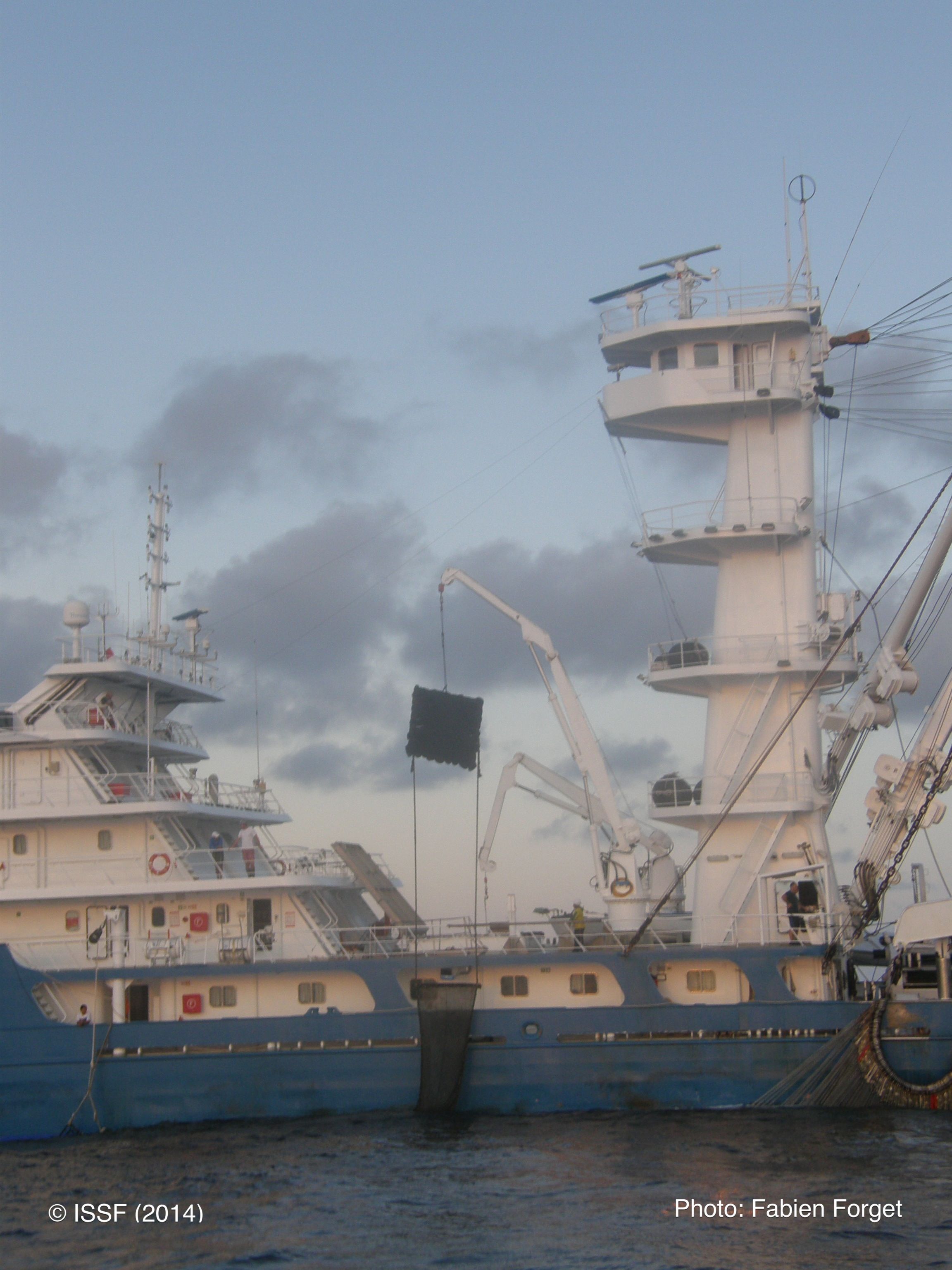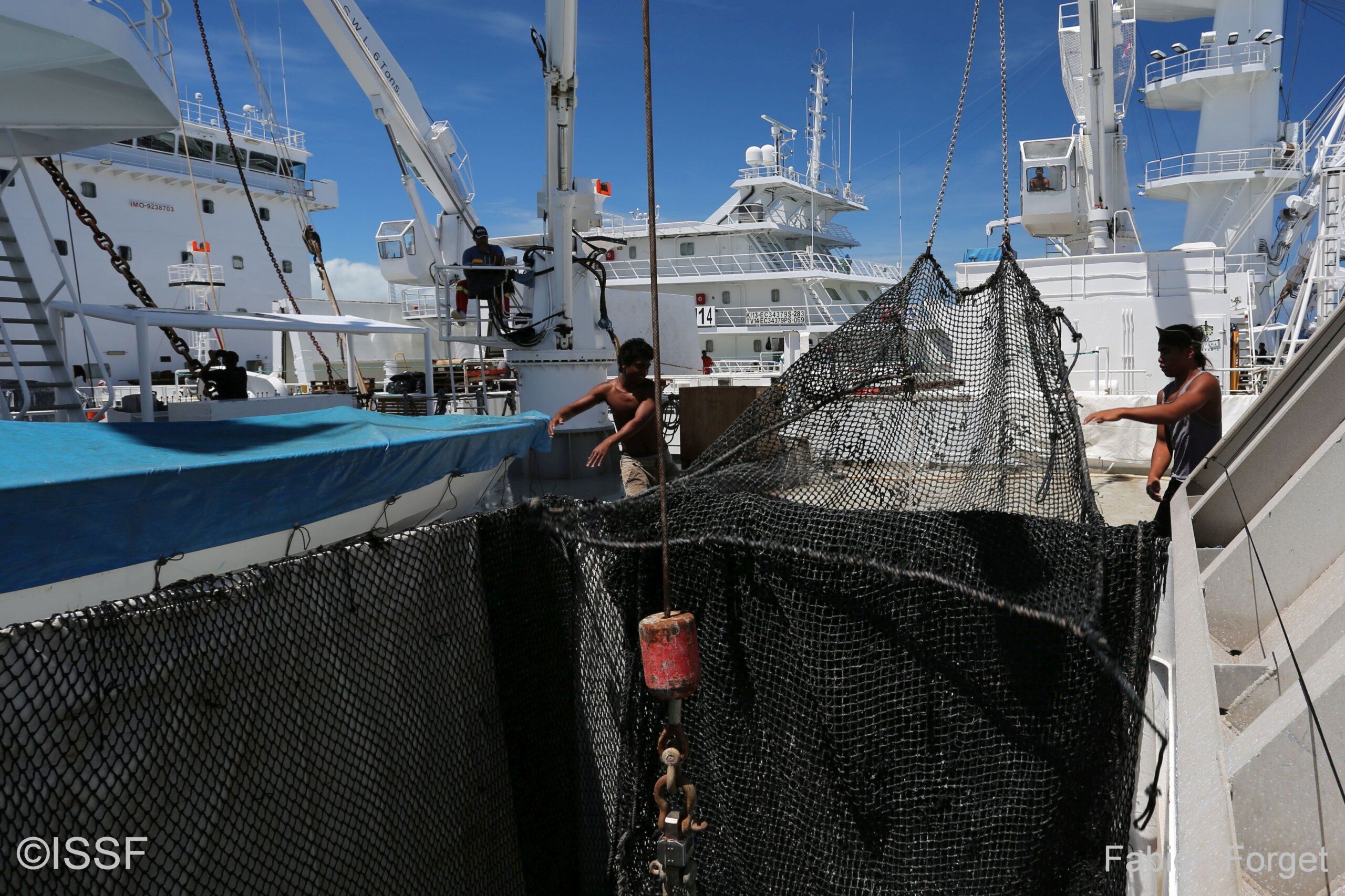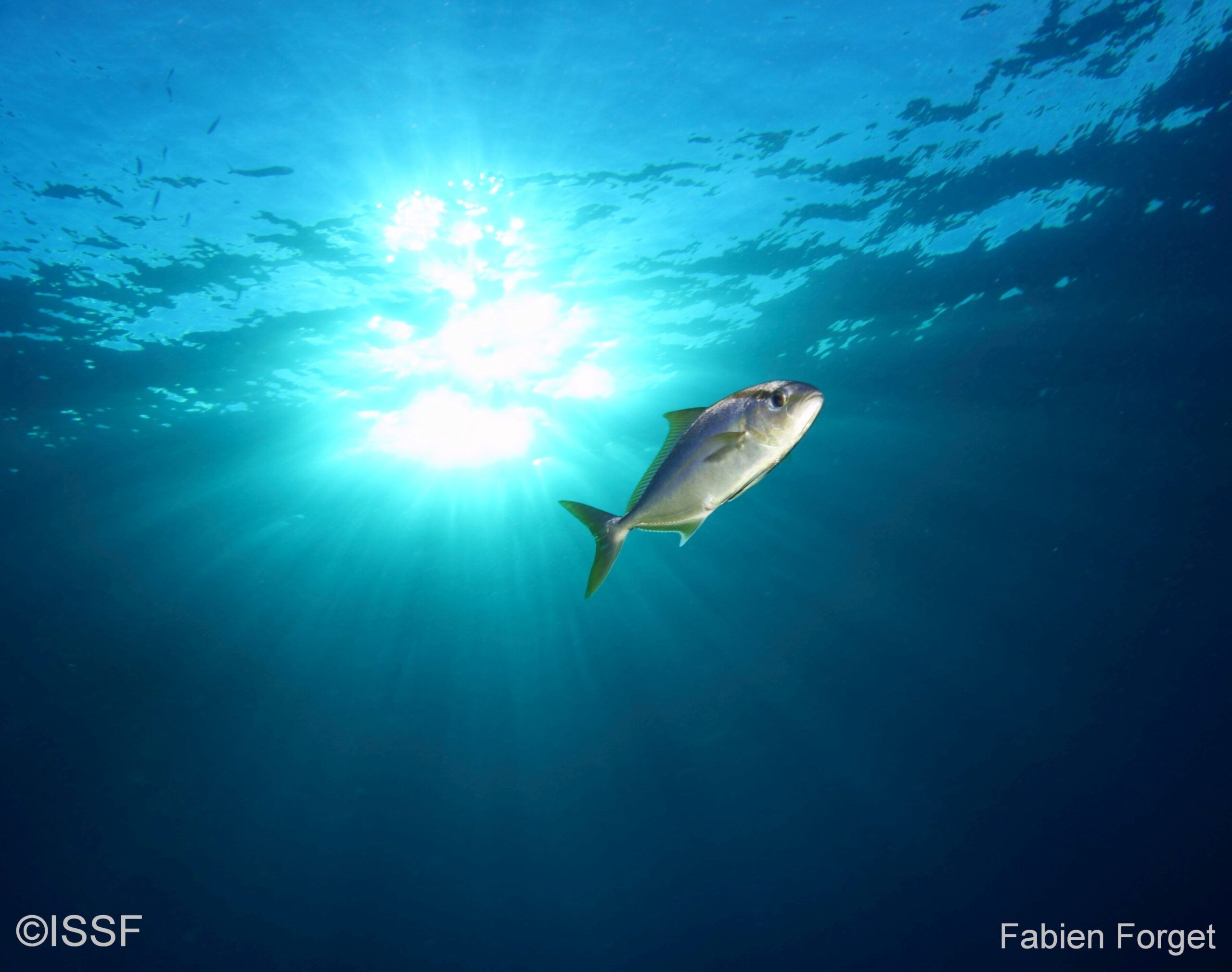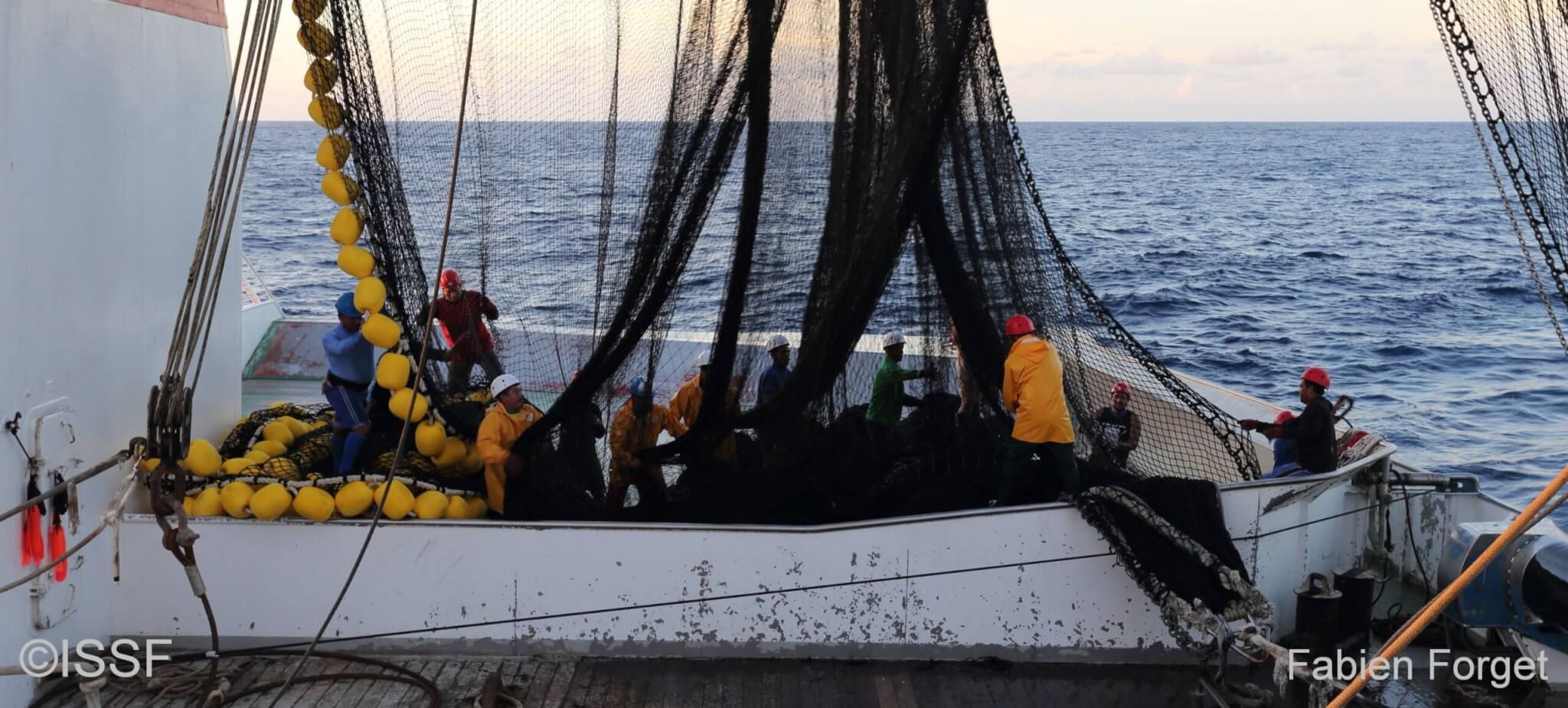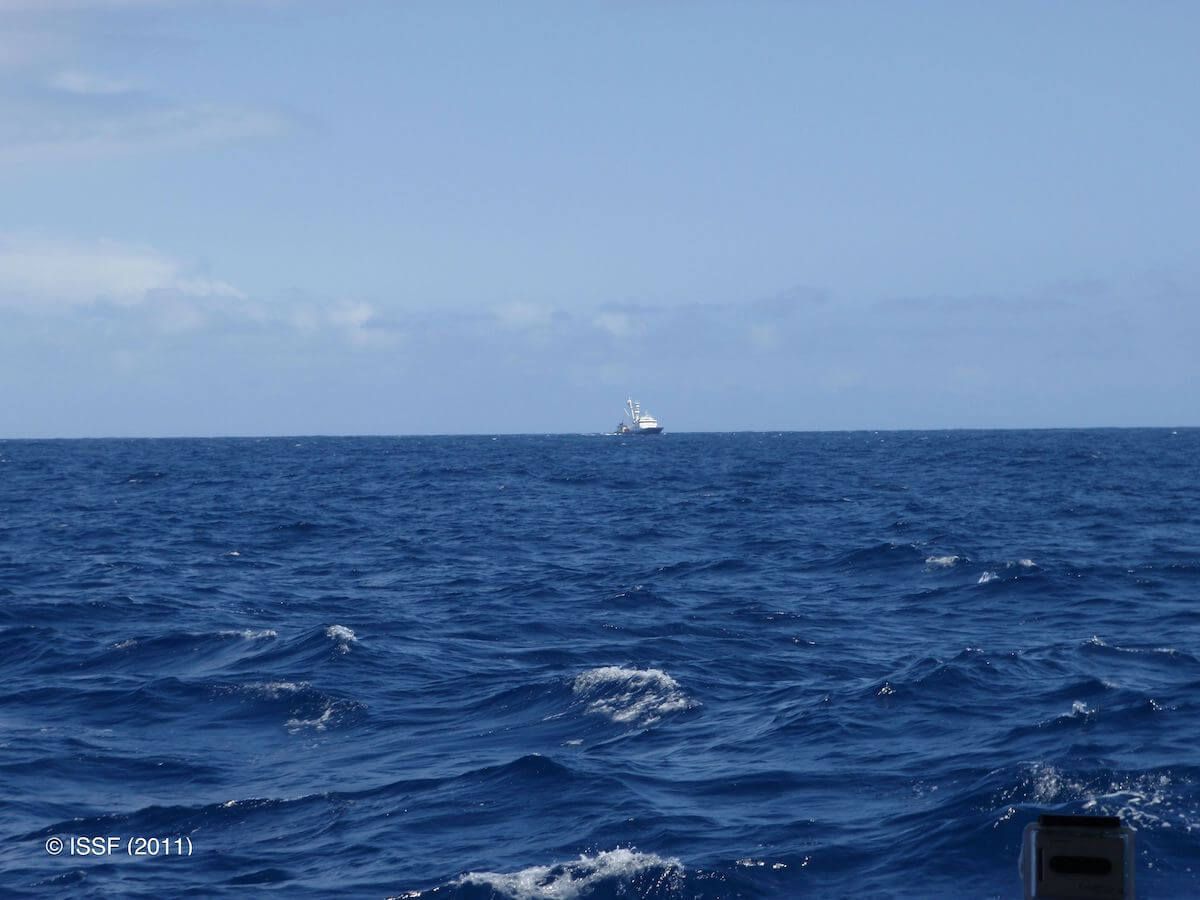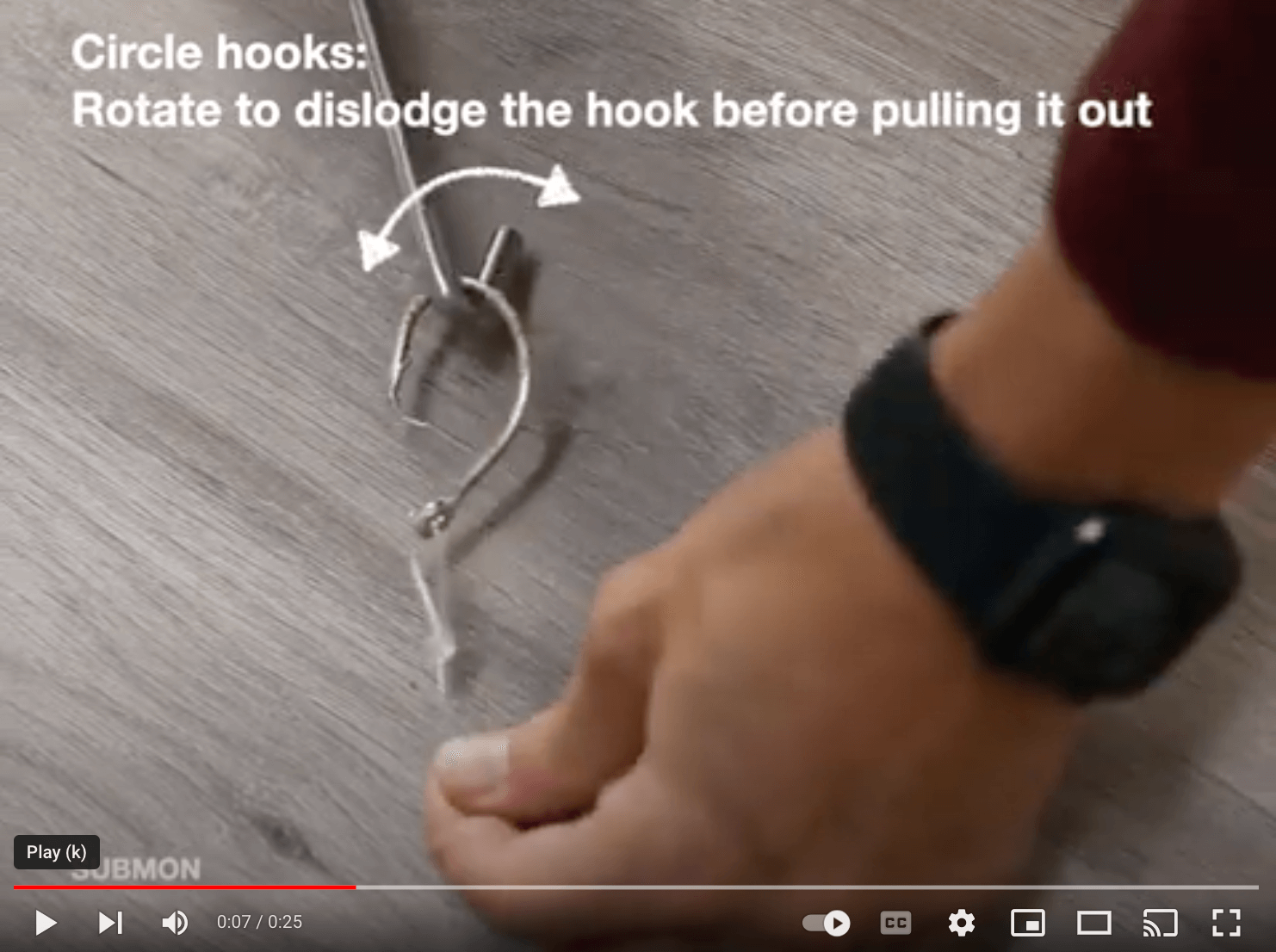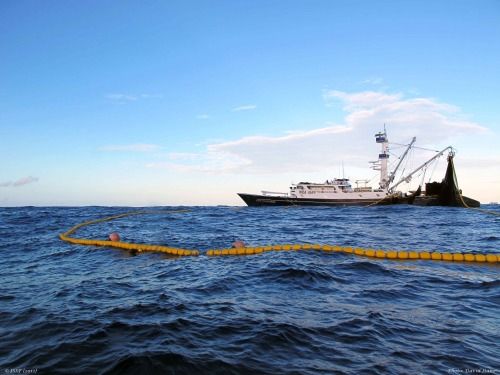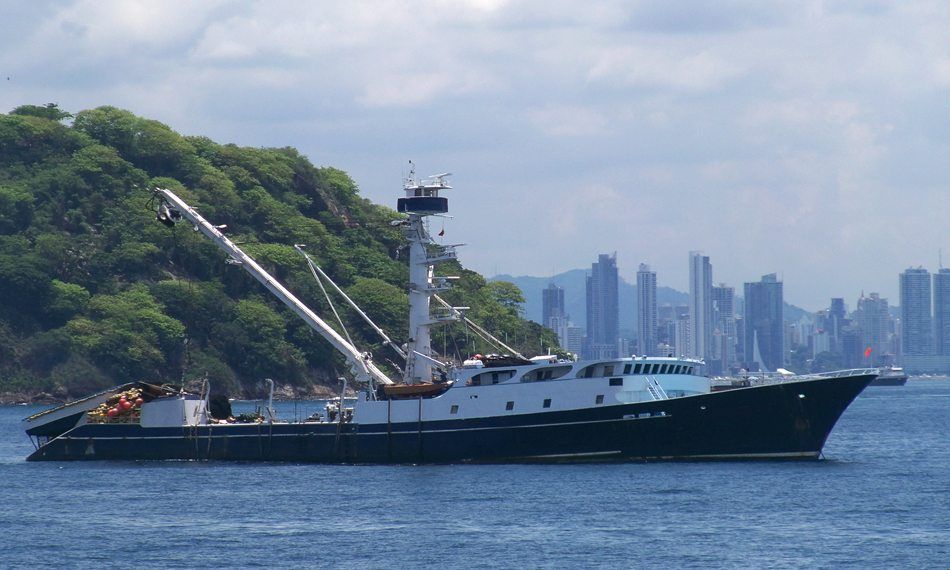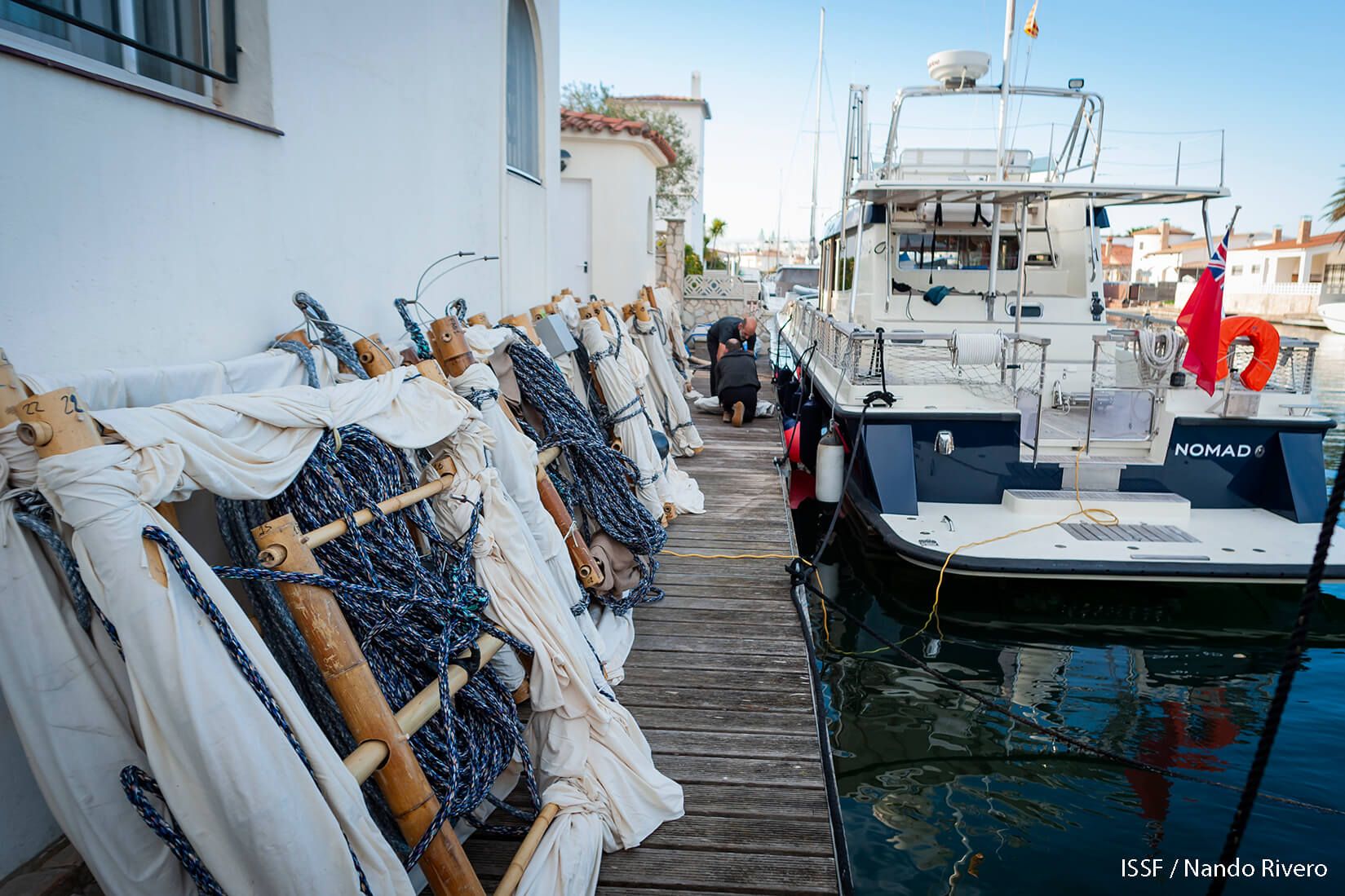Though fishing with fish aggregating devices (FADs, or more generally, floating objects) has been in practice for hundreds of years, the number of FADs being used by tuna purse seine vessels has increased steadily in the last two decades. In 2021, the last year for which we have complete data, FAD sets accounted for 37% of the more than 4.5 million tonnes of tropical tunas (bigeye, skipjack and yellowfin tuna) caught globally. For skipjack tuna, FAD sets accounted for 47% of the 2.7 million tonnes caught. Clearly, fishing on FADs is a crucial means of providing an important food source for the world.
Indeed, fishing on FADs is efficient and widely used. But the use of FADs also comes with downsides that are of concern and must be addressed. Here I share some of the work that we at ISSF have been doing together with our research, NGO, and industry partners to ensure that these fisheries are sustainable for the long term.
FADs and Bycatch
One of the main concerns about FADs has long been that sets on floating objects have higher rates of bycatch of non-tuna species than sets on free-swimming schools. Many claims related to this have been campaigns that are not rooted in science. One of our earliest areas of work on FADs, therefore, was analyzing independent observer data to accurately document bycatch in purse seine fisheries. It turned out that bycatch rates on FAD sets (2.24%) are indeed higher than in free school sets (0.43%), but much of it is of species that are utilized such as mahi-mahi and the minor tuna species. Also, this rate is small compared to the bycatch of other tuna fishing gears, such as longlines and gillnets.
What really matters in addressing the bycatch in FAD fisheries is not so much identifying a particular number, but rather identifying and addressing those bycaught species that are of conservation concern. For example, because of their low reproductive rates and other life history characteristics, silky sharks — which are often caught in FAD sets (they are caught on free school sets, too, but less often) — are a vulnerable species.
We have therefore identified ways in which silky shark bycatch can be mitigated, and many fleets have adopted these practices voluntarily. Fishers can take steps before and after the tuna catch to reduce unintentional catches of silky sharks by up to 62%. Specific shark bycatch-mitigation techniques are outlined in ISSF scientific reports and skippers guidebooks. In addition, regional fisheries management organizations (RFMOs) in the Pacific and Indian Oceans have adopted best practice guidelines for reducing bycatch of, as well as the safe release of, sharks and rays.
Of similar concern is the entanglement of silky sharks and other wildlife like sea turtles in netting used as hanging structures in traditional FADs — a phenomenon known as “ghost fishing,” first identified by ISSF-supported marine scientists in 2013. To avoid shark, turtle, or other animal entanglement in netting from FADs, fishers should use only non-entangling FAD designs. The ISSF Non-Entangling & Biodegradable FADs Guide illustrates how to build FADs without netting.
Thanks in part to ISSF advocacy efforts and those of partner organizations, tuna RFMOs now require FADs to be either completely non-entangling or of low risk of entanglement. This issue was identified and addressed in the span of three to six years, an encouraging sign of progress and political will.
FADs and Juvenile Tunas
A large proportion of the yellowfin and bigeye tuna caught on FADs is immature. Many people assume catching immature fish or “juveniles” results in overfishing, but this is not necessarily the case. A fish stock can be overfished by catching too many juveniles, by catching too many adults, or by catching too many of both. In terms of overfishing, what matters is how fishing affects the reproductive potential of the stock. Catching adults affects today’s reproductive potential, while catching juveniles affects it sometime into the future.
A different impact from catching juvenile yellowfin and bigeye tunas is that the maximum catches that can be sustained — the so-called Maximum Sustainable Yield, or MSY — is lower than if fishing is selectively shifted towards larger individuals. This is not a biological impact in the sense of overfishing. It is an issue for fishery managers to address in terms of allocation between fishing gears — for example, purse seine versus longline. RFMOs must define management objectives and adopt harvest strategies that will achieve those objectives.
FADs and Habitat Impacts
Many of the FADs that are deployed each year are lost or abandoned and some end up in vulnerable habitats such as coral reefs. In addition, when FADs are made with plastic materials such as old netting, these losses add to marine debris as FAD decay. One study reports that in the Western and Central Pacific Ocean, the world’s largest tuna fishing grounds, more than 90% of FADs are never retrieved after deployment.
ISSF scientists have conducted at-sea research, as well as consultations with fishers through workshops, to identify ways in which these impacts can be mitigated. A major part of this work is focused on how to transition to FADs made mostly or completely of biodegradable materials. Biodegradable FAD trials are being conducted in all oceans. And, with the newest innovation of the jelly-FAD — comprised of materials that provide the structure a density like seawater, allowing for a neutral drift in the water column like a jellyfish — we are confident that a viable FAD that is fully biodegradable (except for the buoy and flotation) will be identified soon.
Another aspect of mitigating these impacts is preventing the loss or abandonment of FADs and incentivizing their recovery. While some RFMOs are encouraging or adopting FAD recovery targets, these targets are likely insufficient. One of the problems is that there are no clear rules of FAD ownership and responsibilities, with weak controls regarding accountability. As a result, FADs deployed by a given vessel may be appropriated by other vessels that encounter them. RFMOs must address this issue by adopting clear rules of ownership and responsibilities. Limiting the number of FADs in each ocean region is complementary tool for RFMOs in this effort. ISSF recently convened an experts’ workshop to consider how different principles of economic theory could be used to make FAD limits more effective. We published a report that lists recommendations on actions that can be taken to incentivize fewer FAD deployments and higher rates of FAD recovery.
FAD Management and Compliance
ISSF has identified six elements that are of utmost importance for FAD management:
- Comply with flag state and RFMO reporting requirements by set type
- Voluntarily report additional FAD buoy data for use by RFMO science bodies
- Support science-based FAD limits
- Use non-entangling FADs to reduce ghost fishing
- Mitigate other environmental impacts due to FAD loss, including using biodegradable FADs and FAD recovery policies
- Implement further mitigation efforts for silky sharks
ISSF also adopted a conservation measure on FAD management, ISSF Conservation Measure 3.7 Transactions with Vessels or Companies with Vessel-Based FAD Management Policies for ISSF participating companies. The measure requires seafood companies to conduct transactions only with those purse seine vessels whose owners develop and make public FAD management policies that explain how their vessels are addressing the six elements above. The aim is that this increased transparency into vessel practices will spur RFMOs to continue improving FAD management.
There Are Benefits, Too
As mentioned at the opening of this article, the use of FADs is responsible for an important portion of the world’s tuna catch. Without FADs, the level of tuna catch would be significantly reduced, even for those species like skipjack tuna, the stocks of which are at healthy levels of abundance worldwide. Global food security would surely suffer as a result.
And a wholesale shift to an alternative, FAD-free method — which would be necessary to meet global demand for a protein-rich food source like tuna — is not without concern. Because no fishing method is without environmental impact, a decrease in fishing on FADs and the corresponding increase in fishing via other methods would only serve to increase the impact of the non-FAD method. For example, as FAD fishing effort shifts to free school sets, pressure on adult stocks of yellowfin tuna increases — a problem for a species that is currently overfished or close to being overfished in some oceans.
Finally, FADs also present a unique opportunity to improve our understanding of the pelagic ecosystem. All FADs are equipped with GPS tracking systems. Many FADs have sophisticated echosounders that measure the biomass of tunas aggregated underneath. As this information is increasingly made available voluntarily by many fleets to marine scientists, we are learning more about tuna behavior and improving tuna stock assessments. For example, the ISSF conservation measure on FAD management includes reporting FAD data for use by RFMO science bodies. It is important that these data contributions to RFMOs become the norm to make such analyses routine.
More Work Remains
RFMOs have made progress on FAD management over the last 10+ years. Twelve years ago, for example, the only controls in place were time/area prohibitions on FAD use in some oceans. Today, all RFMOs have some management system in place for tropical tuna fisheries that includes several essential elements of FAD management like data reporting on FAD fishing and activities; seasonal closures; active FAD limits; 100% observer coverage; and the safe release of sharks and rays. And as discussed, the way RFMOs worked to adopt non-entangling FAD requirements in response to “ghost fishing” reveals that fisheries managers can be moved when research findings and political will converge.
We look forward to RFMOs persisting in this vein: they must progress FAD management measures while also ensuring that current FAD requirements are being followed. All RFMOs have a compliance process, and this process must address FAD management requirements.
We still have work to do toward improving the use of FADs while ensuring that there are plenty of fish in the sea. But we’ve made substantial progress to date. ISSF and likeminded organizations will continue to work toward achievable, science-based solutions for reducing the impact of FAD fishing on global tuna fisheries and the broader marine ecosystem.
